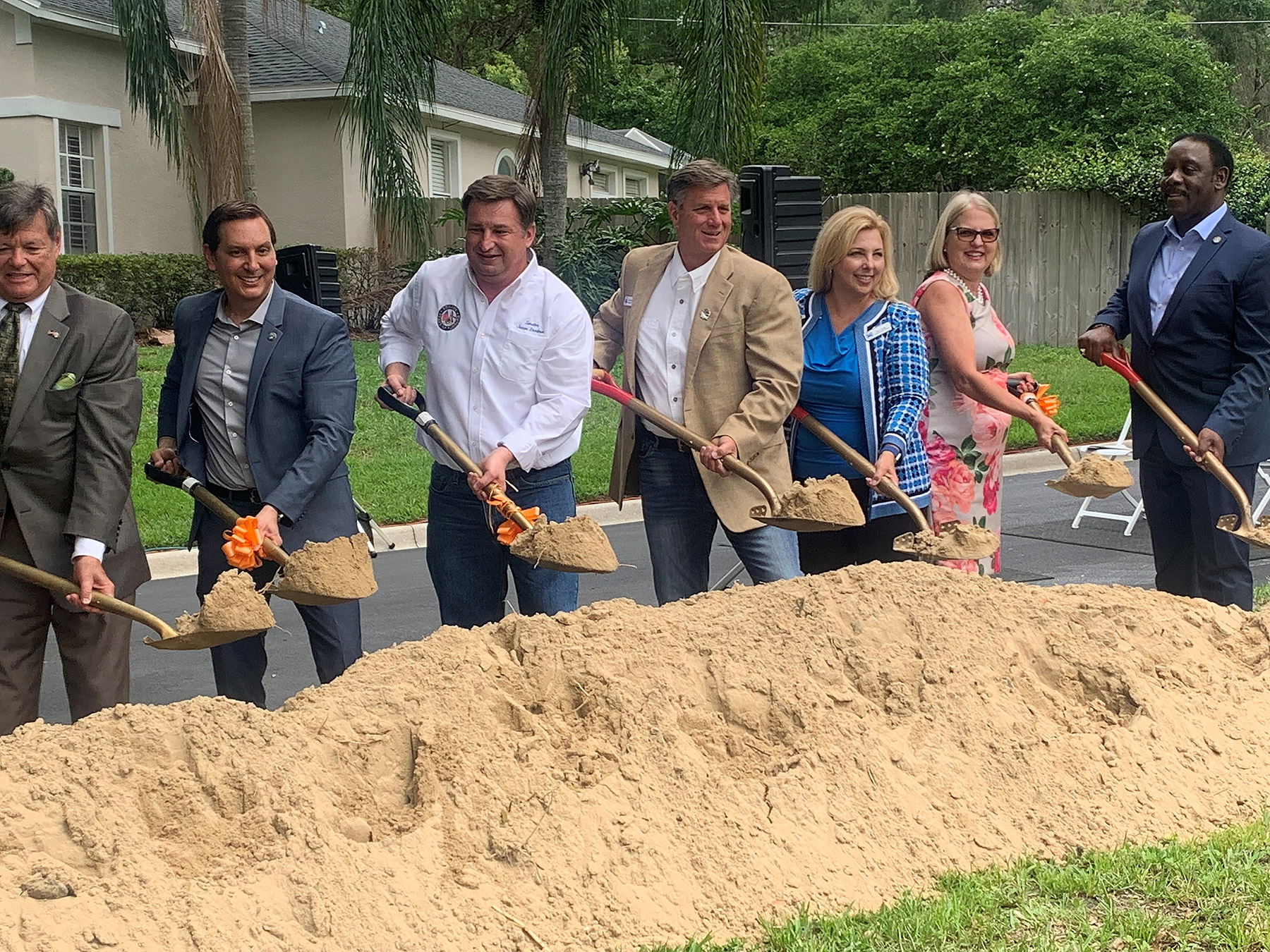Orange County Commissioner leads the charge to protect Wekiwa Springs
Participating in the June 18, 2021, cost-share groundbreaking ceremony are, from left: Seminole County Commission Chair Lee Constantine; Orange County Utilities Director Ed Torres, Sen. Jason Brodeur, District Governing Board member Chris Peterson, District Assistant Executive Director Lisa Kelley, Orange County Commissioner Christine Moore and Orange County Mayor Jerry Demings.
Before she could lead a movement to protect Wekiwa Springs, Orange County Commissioner Christine Moore knew she first needed to gain the trust of her constituents.
Moore’s uphill battle began in 2018, when she realized that the thousands of septic tanks in Orange County were impacting water quality in Wekiwa Springs, but homeowners balked at the potential $45,000-per-household cost of switching over to sewer.
“I asked myself, ‘How can we convince people to be part of the situation instead of fighting it,’” Moore recalls. “I love history and had researched and written a history of Wekiwa Springs. You could see the degradation of the springs, and I wondered what the area would be like without the springs.”
Moore’s steadfast crusade to save Wekiwa Springs is now paying off.
On June 18, 2021, Orange County held a groundbreaking ceremony to launch the start of a major septic-to-sewer conversion project in Wekiwa Springs. The sustainability project is expected to connect more than 2,000 homes to the county’s central sewer service. Partnerships for this important environmental plan include the Orange County Board of County Commissioners, Orange County Utilities Department, the St. Johns River Water Management District, and the Florida Department of Environmental Protection (DEP).
Moore’s strategy for building a public consensus was to build relationships, gain trust, and remove a large portion of nitrogen entering the springs.
“I was sworn in as a county commissioner in December 2018,” she says. “By 2019, I was holding public meetings. As an area homeowner, I kept telling them that we have to figure this problem out together, that ‘I’m in the same boat as you.’ I said it so many times that people began to trust me.”
Because of the costs associated with septic-to-sewer conversions, Moore looked to the District and DEP for grants to slash costs to homeowners.
“Residents realized that they could manage a $700-a-year payment,” she says. “They were saying, ‘I can manage it. The spring is worth it. Suddenly, converting to sewer wasn’t so scary.”
Before long, Moore was winning over each neighborhood within the Wekiwa Springs Basin. Nobody wanted to be left behind, Moore says.
Moore credits her dedicated staff for responding to hundreds of phone calls from residents and listening to their concerns “meeting after meeting.”
“I look forward to the day we hook all of these people up and see data that shows we’re reducing the amount of nutrients and nitrogen in the water,” Moore says. “That’s when we’ll know we accomplished something great.”






